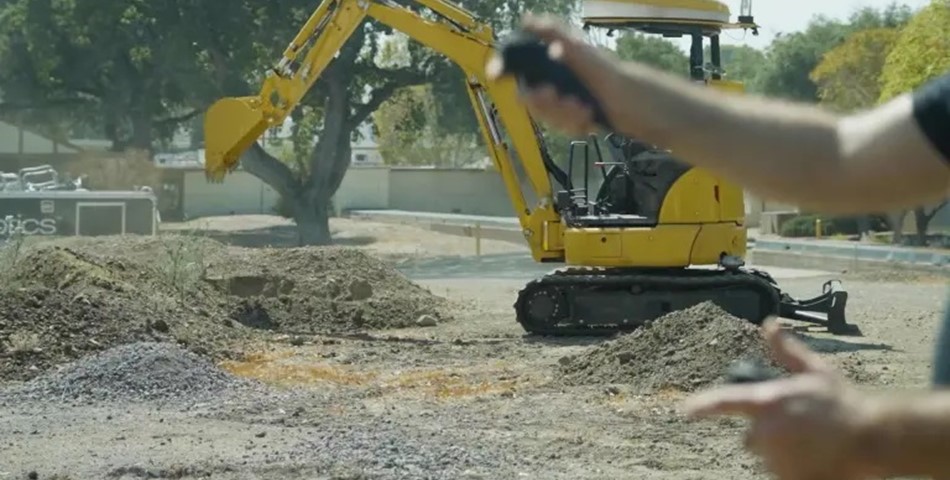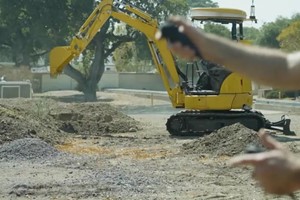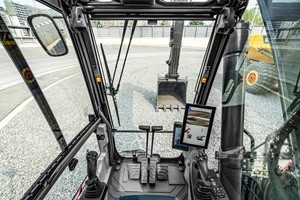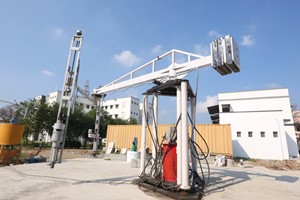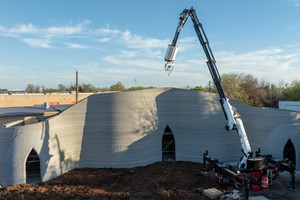Experts are excited at the future of industrial autonomy
- Researchers have designed a smart excavator that can be operated remotely using intuitive controls.
- Experts are excited at the prospect of the smart excavator, which also has autonomous functions.
- Despite their advantages, autonomous functions must be carefully tested before deploying the machines in the field, warn experts.
Operating heavy machinery requires a certain degree of skill, but researchers are devising new methods to transfer intelligence from human operators to machines.
In a write-up, Dr. Tom Fiske, principal technology strategist at Yokogawa, reasoned that the transition from industrial automation to industrial autonomy is the next step. To bring that concept to life, the SRI International research institute has designed a prototype excavator, which, in addition to traditional controls, can also be operated using a remote controller and is equipped with the smarts to perform several tasks autonomously.
"Automation of heavy machinery is a good step," Vivek Khurana, Head of Engineering at Knot Offices, told Lifewire over a Skype call. "Overall, such automation will change the nature of jobs from machine operator to machine configurator and will require existing machine operators to upgrade their skills."
Smart Excavator
The excavator is equipped with a front-facing stereo camera to give operators a high-definition view of their work area.
Moreover, the excavator can be operated remotely with the help of a controller, which Khurana suggests could help improve the operator's safety, especially in a tricky situation.
According to a video of the excavator, a trained operator wearing an augmented reality (AR) headset can see what the excavator sees with the help of six stereo cameras. The system can be operated remotely from a distant workstation, potentially enabling skilled workers to operate the machine from a control station situated outside the actual construction site.
Dr. Noel Sharkey, co-founder for the Foundation for Responsible Robotics told Lifewire in an email interview that he thinks that the remote control doesn't add much to the driving experience and would still require the expertise of a skilled driver.
It's a good thing then that SRI has that use case covered as well. Common excavator functions such as digging can be controlled using a motion-tracking controller with the excavator's bucket mimicking the hand gestures and motions much like using the Nintendo's Wii controller.
Skilling Machinery
Considering that most heavy machinery is used in environments that aren't safe for humans, whether it is digging a pipeline in a desert area during the peak of summer or clearing snow from the mountain roads during winters, SRI's excavator could perhaps signal the beginning of a trend, suggests Khurana. "A human can sit inside a controlled environment and operate the machine from a distance, reducing the hardship faced by blue-collar workers.
"Overall, such automation will change the nature of jobs from machine operator to machine configurator and will require existing machine operators to upgrade their skills."
Sharkey agrees, suggesting even more extreme use cases for remote-controlled machines, such as during nuclear disasters and in war zones.
Furthermore, the ability to control the machines remotely also opens the possibility of workers shuttling between geographically distant sites, with essentially a flick of a switch, saving time and money.
"This level of automation will help cut costs as well as speed up the infrastructure projects as the machines can keep on working round the clock under any weather condition," suggested Khurana.
He's also optimistic about the autonomous nature of the excavator and thinks a fleet of such self-functioning machinery will increase efficiency and reduce wastage. "Machines generally stick to higher safety standards and follow procedures more rigorously than humans. Thus, it can also improve safety on construction sites," said Khurana.
The one autonomous capability that appeals to Sharkey is the excavator's ability to detect people. According to SRI, the smart excavator freezes when somebody breaches its safe operating area. The detection works in dark, underlit conditions and makes the excavator flash warning lights to alert the person who has ventured too close to the machine.
However, Sharkey suggests that the machine's autonomous functions must be tested thoroughly. "That will require a lot of development and constraints to avoid errors that could have very serious consequences," warns Sharkey.
Khurana too suggests that before smart machinery can be deployed in the field, the engineers must thoroughly test and identify the border conditions where the machines can fail. "We also need to update the safety precautions and maintenance drills, to take into account the autonomous nature of machinery and to handle failures," recommends Khurana.
SRI Robotics
SRI Robotics developed an excavator for construction automation that can operate autonomously following pre-programmed instructions on where to dig, be controlled using video game motion controls, or manually by a driver.
The operator can control the excavator using simple video game motion controls. The excavator can also be controlled manually by an operator.
The autonomous operation for the automatic digger is possible through several depth-sensing 3D cameras, antennas, and wireless communication that also allow the excavator to intelligently detect people and stop while flashing warning lights to provide safety.
The remote control of the excavator is possible through a VR headset fed by six stereo cameras, a set of joysticks, and an internet connection where a skilled operator can control the excavator away from the construction site promoting safety for workers.
Even if the worker is not skilled, the excavator can track the arm movements of an unskilled operator in real-time through a motion-tracking controller to do the task.
This excavator can automate repetitive actions such as digging and enable skilled workers to remotely operate the more complex tasks enabling automation in the construction industry.
By Mayank Sharma




